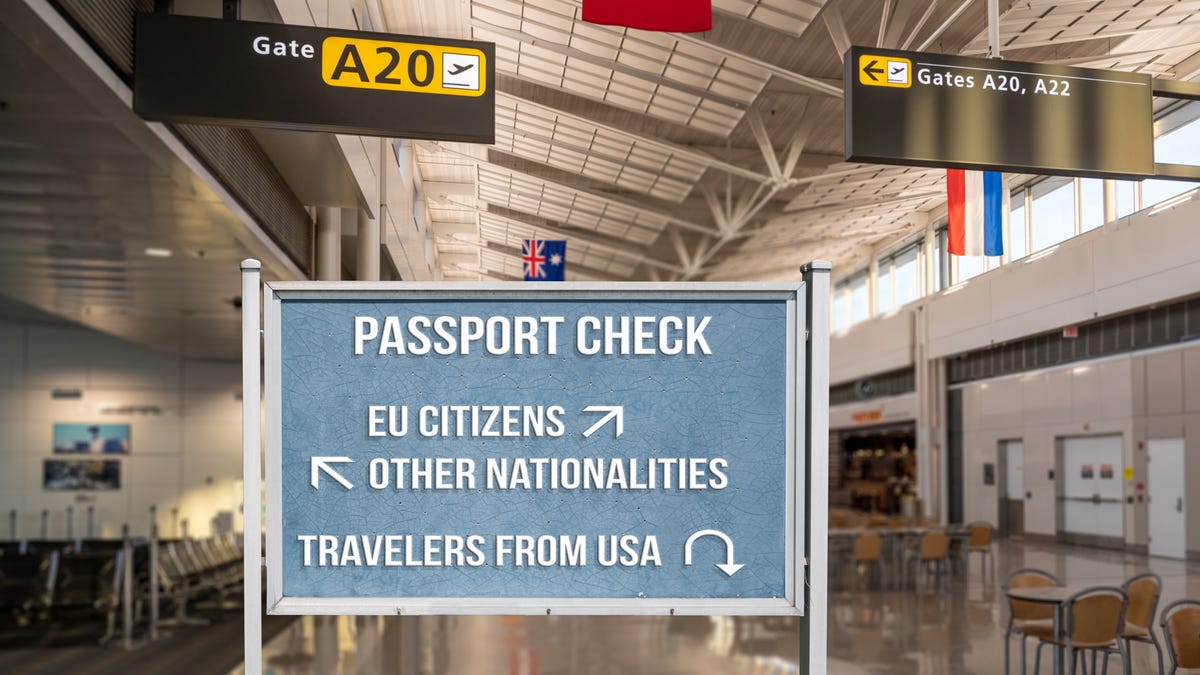Everything You Need to Know About the EU Travel Ban - 4 minutes read
 Photo : Shutterstock ( Shutterstock )
Photo : Shutterstock ( Shutterstock )As more and more international flights resume, many countries have placed bans on who can enter their borders and who cannot. The United States, for instance, is banned from the European Union, due to the spike of COVID-19 cases in the States. Here’s everything you need to know about the EU travel ban.
Advertisement
What is the European Union?
The European Union or EU is made up of 27 countries. These countries came together to cooperate economically.
Advertisement
The first step in becoming a part of the EU is that the country has to meet certain criteria.
A few are:
Stable institutions guaranteeing democracy, the rule of law, human rights and respect for and protection of minorities; A functioning market economy and the capacity to cope with competition and market forces in the EU; The ability to take on and implement effectively the obligations of membership, including adherence to the aims of political, economic, and monetary union.
Who can travel to the EU?
The EU has slowly opened its border restrictions to allow travelers from Canada, Japan, and New Zealand to enter. Americans are currently banned from traveling to any country in the EU, due to the increased number of cases of COVID-19 that have appeared here.
Advertisement
However, there are exemptions for:
Permanent documented residents of the EU
Healthcare professionals, health researchers, and elder-care professionals
Diplomats, the staff of international organizations, and people invited by international organizations, military personnel, and humanitarian aid workers, and civil protection personnel
Passengers traveling for emergency family reasons (life or death)
Traveling for the purpose of studying
Under these exemptions, you would be allowed to enter the EU, but you should double-check with that country’s embassy.
Advertisement
For the entire exemption list, you can click here.
What about planned travel?
If you purchased a ticket with a US airline, you will be bound by the terms of US law under the Department of Transportation. You will have to contact your airline customer service, which will more than likely reroute you to calling back due to high call volumes. A quick way of contacting is by tagging your airline on Twitter and detailing the issue.
Advertisement
How to Get a Refund From an Airline Everyone has at least one story of a flight that was not great. You sat on the tarmac for hours… Read more
In the event your airline canceled the flight, you are entitled to a cash refund (as opposed to a flight voucher or credit). However, you would have to actually be in direct contact with an airline’s customer service to receive it or they will automatically grant a flight voucher.
Advertisement
Flight vouchers are good right now because they are extending the usage past the normal expiration dates. Many airlines require that you only use them for yourself, though, and you cannot transfer them to someone else or combine the voucher/credit with cash.
Advertisement
European airline policies
I f you booked a flight on a European carrier, although you may not be boarding the flight, you are still protected under the laws of the European carrier. This means that you would seek compensation, refund, or flight credit based on European laws, not American laws.
Advertisement
According to Forbes, “if your flight...is operated by a European airline, no matter the destination, you are equally covered by what is known as Rule 261. Rule 261 provides for refunds for any flights that arrive into, travel through, or depart Europe.”
The European Union’s site further states, “if your flight is canceled, the airline must offer you, on a one-time basis, the reimbursement of your ticket.”
Advertisement
If you opt to receive a refund from the European airline, it must be sent within seven days. It must also be paid by electronic bank transfer, bank order , or bank check .
Source: Lifehacker.com
Powered by NewsAPI.org